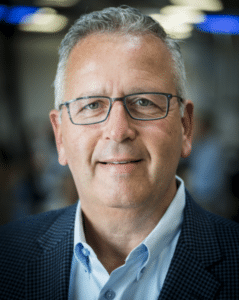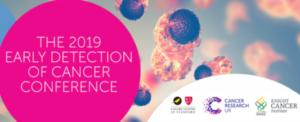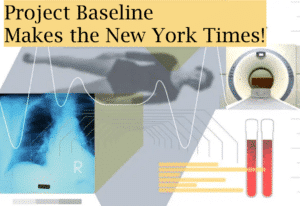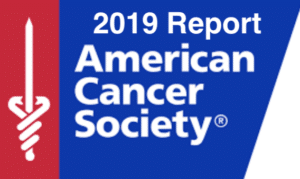Blog
Archive for the ‘prostate cancer early detection’ Category
Early Detection of Cancer Annual Conference- EDx23 – hosted by Cancer Research UK, Canary Center at Stanford, & OHSU Knight Cancer Institute, and bringing together great minds to collaborate in cancer early detection research!
November 1, 2023

The Early Detection of Cancer Conference brought nearly 500 researchers, physicians, patients, industry leaders and supporters to London in October to share the latest findings in early detection of cancer. The conference was the largest since its inception and included lively debates, discussions, and presentations of recent advances including:
-
- using data and prediction models to risk stratify for cancer screening;
- incorporating machine learning for earlier detection;
- integrating imaging and biomarkers for early detection;
- involvement of patients, regulatory bodies and governments in delivering tests that detect aggressive tumors at their earliest stages when they have the best chance of cure.
Click here for the full agenda of speakers and topics:
Canary Foundation Welcomes Dr. Joseph DeSimone
November 22, 2020

Dr. Joseph DeSimone
We welcome Professor Joseph M. DeSimone, PhD. in the position of the Sanjiv Sam Gambhir Professor in Translational Medicine. We are fortunate to have such creative and capable leadership as our work together in cancer early detection continues.
From the Stanford Press Release: The Stanford Department of Radiology is proud to announce Professor Joseph M. DeSimone as the inaugural Sanjiv Sam Gambhir Professor in Translational Medicine. A shining example of achievement, Joe has been described as “an igniter of innovation”. He has received international recognition as a scientist, inventor, and entrepreneur, earning major accolades including the U.S. Presidential Green Chemistry Challenge Award, the 2017 Heinz Award, and the Lemelson-MIT Prize. He is one of only 25 individuals elected to all three U.S. National Academies—the National Academy of Sciences, Medicine, and Engineering. In 2016, President Obama presented him with the National Medal of Technology and Innovation, the highest honor in the U.S. for achievement and leadership in advancing technological progress. Read more here.
Joe and his lab have made significant scientific breakthroughs in science and medicine including next-generation approaches to cancer treatment and diagnosis, implantable drug delivery devices, green chemistry, and most recently in 3D printing technology for medical devices tailored to an individual patient’s needs. A dedicated educator and strong advocate for bringing a broader diversity of perspectives into research, he has mentored over 80 students through PhD completion at Univ. of North Carolina and North Carolina State Univ. (his former 30-year career), half of whom were women and members of underrepresented groups in STEM.
As an avid researcher and innovator, Joe has authored over 370 scientific publications with over 42,000 citations to his work, and is a named inventor on over 200 issued patents. Additionally, he brings a unique ability to transfer novel solutions from his lab to the world through the companies he co-founded.
Our prostate cancer team has big news from the Prostate Active Surveillance Study (PASS) – a new publication in JAMA Oncology!
October 7, 2020
Our prostate cancer team has more than a decade of experience working remotely from various institutions. During the time of the pandemic, the team has moved forward on important fronts.
Big News –PASS has a new publication in JAMA Oncology! A scientific paper was recently published in the premiere publication JAMA Oncology: The Journal of the American Medical Association. JAMA is a rigorously peer-reviewed medical journal. The principal investigator Matthew R. Cooperberg is on Canary’s Prostate Active Surveillance Study (PASS) team. Many familiar names from the team are seen on the study. The study shows an important way of determining risk assessment that can aid in deciding how often to monitor and other decisions. To hear an interview with Dr. Cooperberg, click here:
https://edhub.ama-assn.org/jn-learning/audio-player/18536720
Tissue Microarray. The team studies the progression of prostate cancer using high-through analysis of multiple cases. Work in this area during the pandemic has included the review of new proposals and project progress from partners, including ones from Austria and Canada. The work has included data analysis, correcting missing data, and arranging tissue shipment.
PASS Central Review. Decisions have been made on reviewing cases.
Meetings and communications. The prostate team has been disciplined in meeting remotely and communicating long distances since it’s formation in 2006. A group meeting was held in June and follow up ensued. Additionally, their annual November in-person meeting has been approved to move to a virtual format.
Enrolling men. PASS enrolls men to keep a steady level of patients as some men rotate out of the program, 2000 being the current number of enrollees. Enrollment is on hold due to the pandemic.
Other action of the Prostate Team include:
- Reviewing new proposals for Canary TMA (pathology)
- Progress on approved projects for Canary TMA (pathology) has been made with data having been submitted from a number of groups and a shipment of tissue samples having been coordinated to an international partner.
- Concordance project for PASS central review (pathology), coordinated decision making on review of cases.
- Papers: read and commented on meeting submissions and manuscripts in progress.
- Administrative: we have held an all-team PASS and prostate pathology group meetings, distributed notes & action items. Plan approved to move November 20 meeting to virtual format.
Canary’s Prostate Active Surveillance Study (PASS) receives $6.7M NCI grant to support growth of the multi-center study!
December 2, 2019
PASS was established in 2008 with funding from the Canary Foundation, demonstrating how we invest in promising early research!
“PASS was launched with six participating centers in 2008,” said PASS Deputy Director Dr. Lisa Newcomb, a Hutch cancer prevention researcher. “With this grant, we’ll be up to 11 sites. Fred Hutch is the centralized repository — specimens are sent to the Hutch from all the sites — and we have procedures for sharing the data and the specimens among the group [members] and with other researchers.”
The grant is designed to support the infrastructure of the PASS cohort, including the collection of follow-up data, management of the database and management of the biospecimen repository.
PASS participants are all early-stage prostate cancer patients who chose active surveillance, not immediate surgery or radiation, to manage their cancer. In active surveillance, patients receive regular PSA (prostate-specific antigen) testing, biopsies and digital-rectal exams to monitor whether the cancer grows or becomes more aggressive.
According to research, more than 30% of men have slow-growing prostate cancer and won’t necessarily benefit from radical treatments that can cause debilitating side effects such as urinary incontinence and impotence. Data from patients with early-stage prostate cancers who choose active surveillance can provide key insights into who’s most at risk from their cancers, and when.
Using the cohort for risk-prediction modeling, Newcomb said, could help “determine who either harbors or will progress to a bad cancer, which cancers are aggressive and which really aren’t.”
“We want to help identify the men who can go home and not worry about their cancer. We’re looking at both ends of the spectrum — making active surveillance less active and identifying the people who will benefit from treatment early.” – Dr. Lisa Newcomb
“We are thrilled,” said Newcomb regarding the transition from Canary Foundation support to NCI funding.
Fred Hutch has had a longstanding relationship with the Canary Foundation and has been the recipient of many grants from the foundation powering work in early detection. The fifth floor of Fred Hutch’s Arnold Building, home to its Public Health Sciences Division, is named for the foundation.
At present, participating sites for PASS include the University of California, San Francisco; Stanford University; Emory University; Beth Israel Deaconess Medical Center/Harvard Medical School; University of Michigan; University of Texas Health Science Center, San Antonio; Eastern Virginia Medical School; Veterans Affairs Puget Sound Health Care System; University of Washington and University of British Columbia.
Interested in PASS? Contact Dr. Lisa Newcomb or go to https://canarypass.org/
Interested in accessing Canary PASS Active Surveillance Risk Calculators? The PASS Risk Calculators provide estimates of how likely a man is to have more aggressive cancer in the future. These tools are intended to be useful for clinicians and their patients as they determine optimal methods of active surveillance. Access the risk calculators: https://canarypass.org/pass-risk-calculator/
To read the full article by Diane Mapes, a staff writer at Fred Hutchinson Cancer Research Center, please go to: https://www.fredhutch.org/en/news/center-news/2019/11/prostate-cancer-study-nci-funding-grant.html
The Early Detection of Cancer Conference at Stanford!
October 9, 2019
 Canary Center at Stanford, Cancer Research UK, and the OHSU Knight Cancer Institute, hosted the Early Detection of Cancer Conference September 24 – 26 at the Frances C. Arrillaga Alumni Center, Stanford, California. Approximately 370 attendees, from 120 institutions, and 11 countries outside of the USA (including Australia, Canada, China, Finland, France, Great Britain, India, Netherlands, South Korea, Switzerland, and Ukraine) brought forth their latest findings and ideas. The annual Conference brings together experts in early detection from multiple disciplines to share ground breaking research and progress in the field.
Canary Center at Stanford, Cancer Research UK, and the OHSU Knight Cancer Institute, hosted the Early Detection of Cancer Conference September 24 – 26 at the Frances C. Arrillaga Alumni Center, Stanford, California. Approximately 370 attendees, from 120 institutions, and 11 countries outside of the USA (including Australia, Canada, China, Finland, France, Great Britain, India, Netherlands, South Korea, Switzerland, and Ukraine) brought forth their latest findings and ideas. The annual Conference brings together experts in early detection from multiple disciplines to share ground breaking research and progress in the field.
The conference is part of a long-term commitment to invest in early detection research, to understand the biology behind early stage cancers, find new detection and screening methods, and enhance uptake and accuracy of screening.
The talks ventured widely, from finding ways to extract more information from cell-free DNA in blood, to building cohorts of people at high risk of cancer to prospectively study the emergence of disease, to the role of the tumor micro-environment and the immune system in cancer early detection, and going beyond traditional risk factors to better select populations for targeted cancer screening.
Highlights of this year’s conference included: More »
Project Baseline aims to map human health
February 3, 2019
 What if we could view changes in the body earlier than early to warn of possible disease? That is the aim of Project Baseline, to map human health. The New York Times published “Project Baseline Aims to Ward Off Illness Before We Get Sick” by Anahad O’Connor (Oct 2018). The study is recruiting 10,000 adults. And each will be examined and followed for at least four years. So the goal is to discover the earliest warning signs of cancer, heart disease and other killers. Participants, the first of whom was enrolled in 2017, are called Baseline Explorers.
What if we could view changes in the body earlier than early to warn of possible disease? That is the aim of Project Baseline, to map human health. The New York Times published “Project Baseline Aims to Ward Off Illness Before We Get Sick” by Anahad O’Connor (Oct 2018). The study is recruiting 10,000 adults. And each will be examined and followed for at least four years. So the goal is to discover the earliest warning signs of cancer, heart disease and other killers. Participants, the first of whom was enrolled in 2017, are called Baseline Explorers.
Project Baseline is the result of conversations in 2013, led by Google X’s Andrew Conrad. He consulted with Dr. Sam Gambhir, MD, chair of Radiology at Stanford University and director of the Canary Center for Cancer Early Detection. And also with Robert M. Califf, MD, professor of Cardiology in the School of Medicine, Duke University.
Conrad (now CEO of Verily, a spin out of Google X) was interested in exploring with these two notable healthcare thought leaders, one in cancer and the other in cardiology, about how to create what has become a landmark study. Both had deep experience in working with large patient cohorts and focus on early detection of disease. The project has formed teams across the country.
Seeking to create a baseline of health
Traditional trials focus on those who have a disease. So Project Baseline, as the name implies, mainly enrolls healthy individuals gathering enormous amounts of information. Baseline equips enrollees with wearable technology from Verily that tracks sleep patterns, heart rhythms and physical activity. The team is developing tools and technologies to collect, organize, analyze and curate the data.
And investigators are determining the best ways to share data with participants that is helpful to them. They are looking at how they can engage with their medical professionals.
Canary Foundation and the Canary Center at Stanford for Cancer Early Detection
Dr. Gambhir has served as Canary Foundation’s scientific director for more than a decade. He led the development of the Canary Center at Stanford for Cancer Early Detection. The Canary Center is a partnership forged in 2008 between Stanford University and Canary Foundation under the leadership of Don Listwin, based on the foundation’s mission. And interesting to know, Canary Center is the first program Stanford has focused entirely on cancer early detection.
American Cancer Society Report January 2019 is hopeful. Yet it motivates us to work harder at finding better tests
January 16, 2019

The new American Cancer Society report shows us that cancer deaths have dropped by 27% since their peak in 1991. The decrease is attributed to early detection, better treatments and a reduction in smoking rates. The ACS report also points to a socio-economic disparity in the numbers, based on broad county and area reports collected by Surveillance, Epidemiology, and End Results (SEER – a National Cancer Institute source of epidemiologic information on the incidence and survival rates of cancer in the United States, where access to education and healthcare remains a problem. Additionally, lower incidence has been slower in cancers such as lung and prostate. Also, rates of new cases rose for pancreatic and other cancers. While the overall decline in rates is great news, we must keep up the momentum to create early detection tests to save lives as cancer remains the second cause of death in the United States (22% in 2016), and a major health issue worldwide.
The report states that in 2019, 1,762,450 new cancer cases and 606,880 cancer deaths are projected to occur in the United States. From the report: “…the Lifetime probability of being diagnosed with invasive cancer is 39.3 % for men and 37.7% for women. Prostate, lung and colorectal cancers (CRCs) account for 42% of all cases in men, with prostate cancer alone accounting for nearly 1 in 5 new diagnoses. For women, the 3 most common cancers are breast, lung, and colorectum, which collectively represent one-half of all new diagnoses; breast cancer alone accounts for 30% of all new cancer diagnoses in women. The reasons for the excess overall risk in men are not fully understood, but partly reflect differences in environmental exposures, endogenous hormones, and probably complex interactions between these influences.”
Canary Foundation has been on the forefront of stimulating the field of cancer early detection globally by demonstrating cancer early detection tests as well as hosting scientific symposiums, mentoring researchers choosing the early detection path, and forging important national and international partnerships. To address access problems, Canary’s investments have focused, when possible, on cost-effective tests as a path to bridging the socio-economic disparities. Examples can be found in are our funded studies in enhance ultrasound using microbubbles, where ultrasound is found in doctor’s offices worldwide, representing an imaging modality in development useful for multiple cancers that is low-cost, non- invasive and with the additional benefit of not using radiation.
Canary funds four collaborative studies that pair faculty at Stanford with faculty at the University of Cambridge
February 15, 2018

Cancer early detection researchers develop future collaborations on a punting excursion in Cambridge, UK in September 2017.
Canary Foundation was ahead of the cancer early detection wave when it started in 2004. Since then, academic institutions, such as the University of Cambridge in the UK and the University of Calgary in Canada, have looked to Canary for advice as they build out their own cancer early detection programs.
This year, one such collaboration is taking shape in dynamic ways. Canary’s partnership with the University of Cambridge has resulted in four promising studies that partner researchers from Cambridge with researchers from Stanford. These projects, jointly funded by Canary Foundation and the Cancer Research UK Cambridge Centre, will explore innovative ways to detect prostate, lung, esophageal and renal cancers at an early stage.
In order to receive seed grants for these projects, applications had to include faculty at both Stanford and Cambridge. By fostering this transatlantic collaboration, Canary hopes to bring outstanding academic and clinical researchers from the US and UK together to tackle some of the most challenging questions in detecting cancer sooner.
The awards were announced at Cambridge’s third annual early detection symposium on January 15. You can read more about these collaborations below or by watching the video.
“A multi-modal approach to discover novel blood-based biomarkers for early detection of poor prognosis prostate cancer”
Tanya Stoyanova, an assistant professor of radiology at the Canary Center, is partnering with Vincent Gnanpragasam, an urologist at Cambridge University Hospitals, to identify different types of tumors in men with prostate cancer. The goal is to distinguish between aggressive tumors that would require immediate treatment, and slow-growing tumors that may not need treatment immediately but could be monitored closely so that any changes in the tumor can be picked up and acted upon. Their project will use data from a number of sources including tumor DNA found circulating in the blood, protein molecules found in cancer cells, and MRI imaging of the tumor.
“Early cancer detection through transcriptomic analysis of host immune cells”
Tom Soh, a professor of radiology at the Canary Center, is exploring new ways to detect early-stage lung cancer through his partnership with Robert Rintoul, a thoracic consultant at Cambridge University Hospitals. The pair is studying the immune cells in blood samples to see if there are particular signals that could be used to identify lung cancer early.
“Levitating a sponge for the early detection of Esophageal Adenocarcinoma”
Utkan Demirci, a professor of radiology at the Canary Center, is working with Rebecca Fitzgerald, Cambridge’s early detection program co-lead, to detect early signs of esophageal cancer. They will use a new nanotechnology developed by Demirci that separates different types of cells using a magnetic field. The technology will be applied to the mixture of cells collected from patients that are given a Cytosponge test developed by Fitzgerald that can diagnose Barrett’s esophagus – a common condition that, in some cases, develops into esophageal cancer.
“Early detection of renal cell carcinoma using DNA methylation markers in urine”
Olivier Gevaert, an assistant professor of medicine and of biomedical data science at Stanford, and John Leppert, an associate professor of urology at Stanford, are teaming up with Charlie Massie, a group leader in Cambridge’s early detection program. They will study whether it is possible to detect the early stages of a type of kidney cancer (Renal Cell Carcinoma) using biomarkers found in urine. Their research will look at specific signals in the DNA cells called methylation.
Upwards and Onwards: Canary Goals for 2014
January 29, 2014
The beginning of the year presents a cue to reflect on the successes of the previous year, and look forward to goals for the coming months. We’re delighted to announce progress with our research that has tremendous implications for future innovations, as well as our ambitions for the Canary Challenge 2014.

New technologies always evoke excitement and anticipation. Here at Canary, if a scientist wants to use a new technology to advance or improve the ways we detect cancer tumors early, we are all for it. Enhanced ultrasound using microbubble technology is one of these technologies.
This technology will change the way doctors view tumors. Microbubbles are miniature gas bubbles, mostly containing oxygen or air, which can be uniformly suspended in a liquid such as blood. Due to their size, they can pass through even the smallest of blood vessels and therefore are commonly used together with medical ultrasound imaging. As effective vehicles for highlighting blood in ultrasound images, Canary scientists use microbubbles as a contrast agent to view cancer tumors. Our clinical trials in Rome with women who have ovarian cancer have produced great results. Here in the US, we anticipate replicating microbubble technology for applications with breast cancer, prostate and pancreatic cancer.
We also value and actively seek out key partnerships, whether academic or industry. Soon we’ll announce a partnership with Genomic Health Inc. in the area of prostate cancer. We’re in talks with MD Anderson in Houston to help with coordinating a national multi-institutional lung cancer study.
We have great plans for our largest fundraising event, the Canary Challenge, which is about to get bigger and better than ever. Mark your calendar now for September 27, 2014. Register now for $25 until March 31. The event will be hosted at HP’s campus in Palo Alto on Hanover St. We’re aiming high this year with a goal of raising $1.5 million, recruiting 150 teams and over 1,500 riders. This year’s ride will benefit the Canary Center at Stanford, supporting the researchers, scientists and doctors who are dedicated to cancer early detection. Come be a part of an amazing one-day cycling event!
We’re pleased to announce that we will again be partnering with women’s pro cycling team extraordinaire, the Vanderkittens, who will host monthly training rides for Canary Challenge riders. Hani Juha, a cyclist and great coach, of Menlo Bike Club will also offer weekly training rides, an annual training program, as well as monthly clinics. We invite anyone and everyone in the Canary community to take advantage of these tailored experiences to brush up on their skills in time for the event.
What are your hopes and dreams for cancer early detection research at Canary Foundation? Let us know in the comments below!
What’s it Like to Ride the Canary Challenge?
December 16, 2013
Save the date to register for the Canary Challenge 2014- registration opens on January 4 in the New Year!
